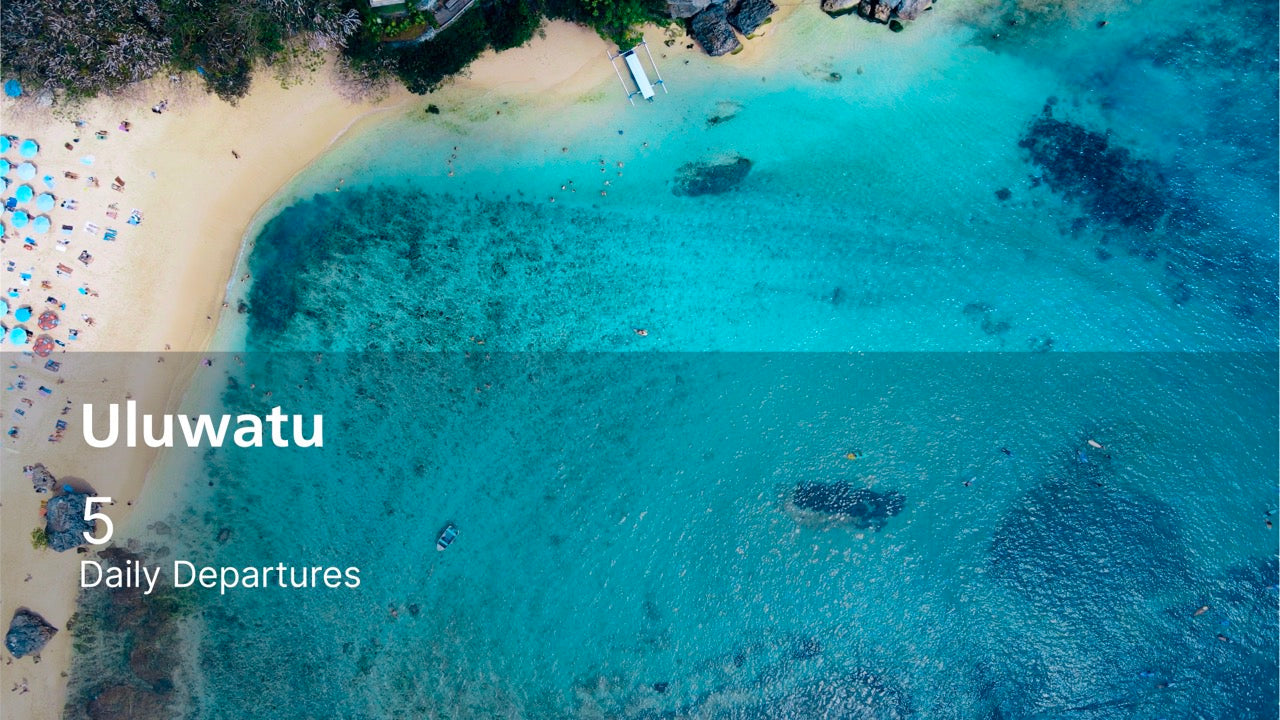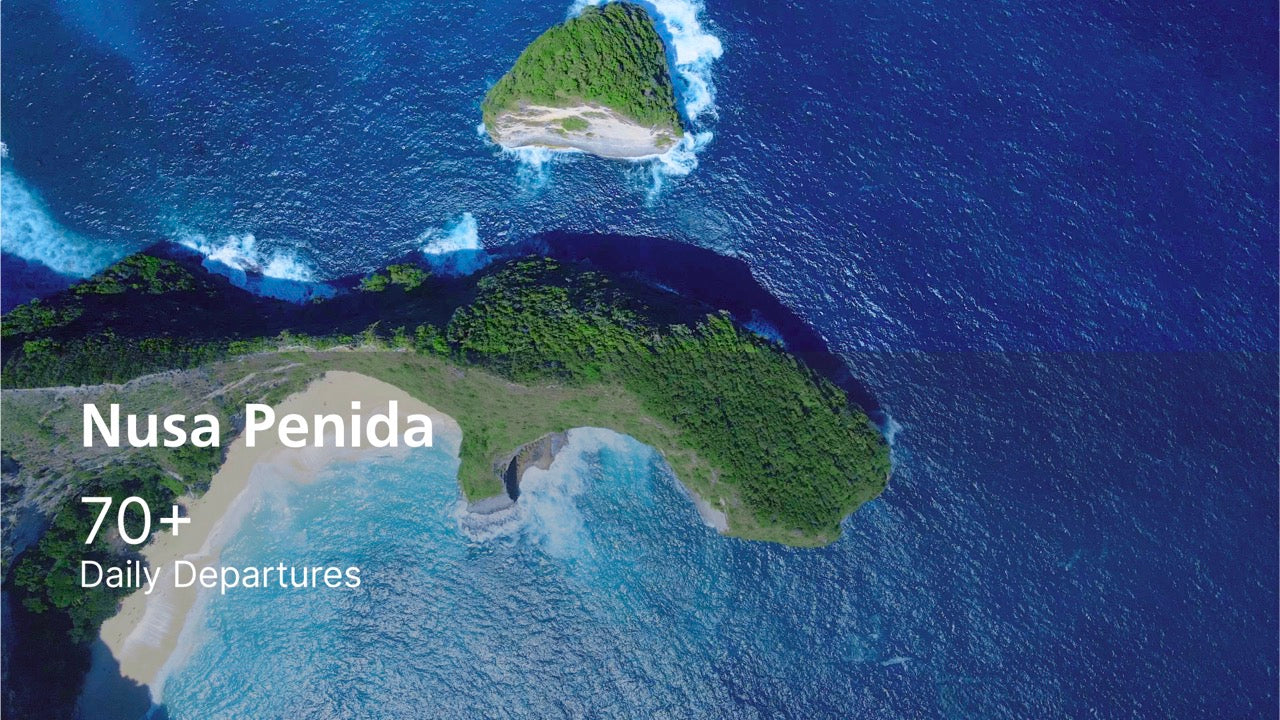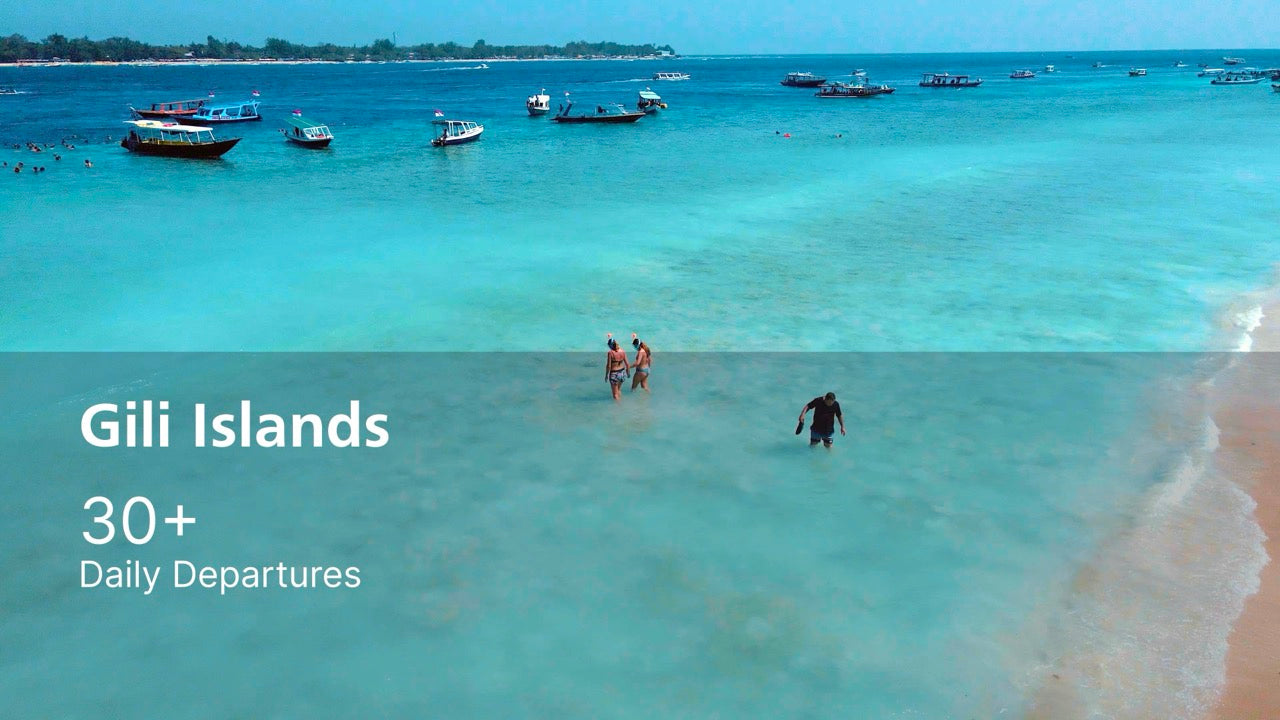Navigating the Island’s Wild Weather
Share
Bali’s Boating Adventures: Navigating the Island’s Wild Weather
Bali, renowned for its picturesque beaches and vibrant coastal life, is a magnet for travelers seeking unforgettable boat trips and water adventures. Among the island’s most beloved spots are Canggu and Uluwatu, each offering its own unique charm. However, Bali’s weather can be as unpredictable as its stunning sunsets, leading to occasional last-minute trip cancellations. Understanding why these decisions are made can enhance your appreciation for the measures taken to ensure your safety and enjoyment.
The Ever-Changing Dance of Bali’s Weather
Bali’s coastal weather is influenced by a blend of natural elements that can shift rapidly, especially around the shores. Here’s a simple breakdown of the key factors that impact boat trips in Canggu and Uluwatu:
1. Swell Conditions
• What It Means: Swells are large waves formed by winds traveling over the ocean. They determine the size and energy of the waves that reach the shore.
• Impact on Boating: High swells can create rough seas, making boat trips unsafe. In Bali, calm mornings can quickly turn into choppy afternoons as swells build.
2. Offshore Winds
• What It Means: Winds blowing from the sea towards the land. Their speed and direction can vary.
• Impact on Boating: Strong winds can amplify wave sizes and create unpredictable sea conditions. In Canggu and Uluwatu, winds from the Southeast (SE) or South-Southeast (SSE) can significantly affect boating safety.
3. Tidal Influences
• What It Means: The regular rise and fall of sea levels caused by the gravitational pull of the moon and sun.
• Impact on Boating: High tides can make waves more powerful, especially when combined with strong swells. In Canggu, high tides often coincide with stronger waves, increasing the risk of rough waters.
4. Wave Energy
• What It Means: A measure of the power of the waves, influenced by both swell height and wind speed.
• Impact on Boating: High wave energy signifies more powerful and potentially dangerous waves. When wave energy spikes beyond safe operational levels, boat trips must be canceled to protect everyone on board.
Canggu vs. Uluwatu: A Tale of Two Beaches
While both Canggu and Uluwatu boast stunning coastlines, they experience weather conditions differently:
• Canggu
• Bolder Waves: Canggu often faces larger waves, especially during high tides and strong swells, creating more challenging sea conditions.
• Frequent High Tides: The higher tidal ranges in Canggu mean that during high tide, waves can become more intense, leading to increased cancellations.
• Wind Patterns: Predominantly Southeast to South-Southeast winds contribute to rougher seas during certain periods.
• Uluwatu
• Calmer Swells: Uluwatu generally experiences slightly lower swell heights, offering a more stable environment for boat trips.
• Moderate Tides: The tidal ranges in Uluwatu are more moderate, reducing the frequency of high-tide-related disruptions.
• Varied Winds: While Uluwatu also encounters strong winds, the overall wave energy tends to be more manageable compared to Canggu.
Why Last-Minute Cancellations Happen
Bali’s weather can change in the blink of an eye, forcing boat trip operators like GoBoat.id to make swift decisions to ensure safety. Here’s why cancellations sometimes occur with little notice:
1. Sudden Weather Shifts
• Rapid Changes: Weather conditions can shift quickly, turning calm mornings into stormy afternoons. What seemed safe at dawn might become hazardous by midday.
• Prioritizing Safety: The safety of passengers and crew is paramount. If conditions deteriorate unexpectedly, trips must be canceled to prevent accidents.
2. High Wave Energy and Swell Spikes
• Unexpected Peaks: Swell heights and wave energy can surge without warning. When these exceed safe limits (typically swell heights over 1.5 meters), trips are canceled to avoid putting everyone at risk.
• Gate Closures: In Uluwatu, extreme wave energy can lead to gate closures, preventing boat launches and necessitating cancellations.
3. High Tides Amplifying Wave Impact
• Canggu’s Challenge: During high tides, waves in Canggu become more powerful. If high tide coincides with strong swells and winds, the sea becomes too rough for safe boating.
• Operational Safety: High tides can also lock entrances or make navigation difficult, forcing operators to halt trips.
4. Maintenance and Technical Issues
• Equipment Reliability: Regular maintenance is essential to keep boats safe and operational. Unexpected technical issues or scheduled maintenance can lead to cancellations.
• Minimizing Disruptions: While maintenance is necessary, operators strive to schedule it efficiently to reduce the number of canceled trips.
Real-World Scenarios
• June’s Weather Woes:
• In June, both Canggu and Uluwatu faced significant swell-related issues. High tides in Canggu combined with strong winds led to multiple full-day cancellations.
• Instances included big waves locking entrances in Canggu and high wave energy requiring gate closures in Uluwatu, making it unsafe for trips.
• October’s Intensities:
• October saw a surge in wave energy and strong offshore winds, resulting in a higher number of cancellations across both locations.
• Trips were frequently canceled due to high tides and swell conditions that quickly rendered the sea too rough for safe boating.
Ensuring a Safe and Enjoyable Experience
While cancellations can be disappointing, they are essential for maintaining safety standards. Here’s how GoBoat.id and similar operators manage these challenges:
• Proactive Monitoring: Continuous weather monitoring allows operators to anticipate changes and make informed decisions swiftly.
• Clear Communication: Keeping passengers informed about potential weather impacts helps manage expectations and reduces inconvenience.
• Flexible Scheduling: Offering alternative trip times or dates can help accommodate affected travelers when weather conditions improve.
Embracing Flexibility for Memorable Adventures
Bali’s breathtaking coastal beauty comes with the responsibility of navigating its unpredictable weather. In areas like Canggu and Uluwatu, swift weather changes can transform a perfect day into a risky one, necessitating last-minute trip cancellations. While these decisions can be frustrating, they are crucial for ensuring the safety and well-being of everyone on board.
By understanding the factors that influence Bali’s weather, travelers can better appreciate the measures taken to provide safe and enjoyable boating experiences. So, the next time you plan a boat trip in Bali, remember that the skies and seas are ever-changing. Embracing flexibility and prioritizing safety ensures that your adventures remain memorable for all the right reasons.
Safe travels and may your Bali adventures be as smooth as the calm seas on a perfect day!

















